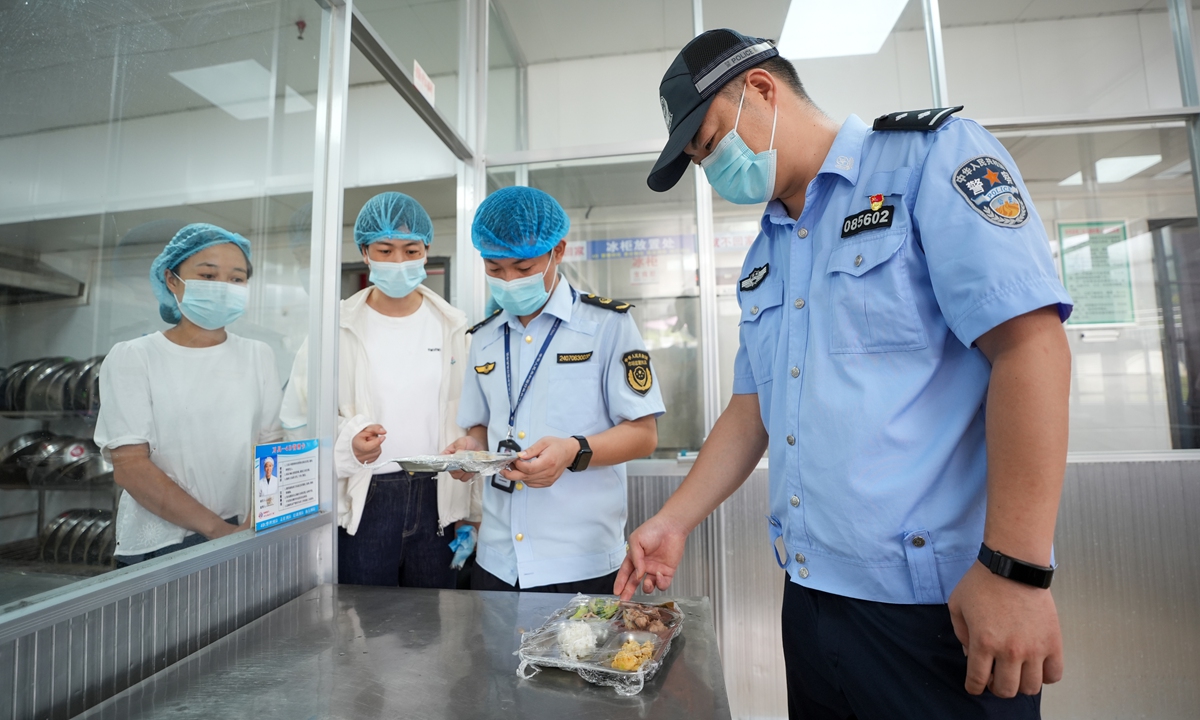A report by the NPC Standing Committee’s law enforcement inspection team on the implementation of the Food Safety Law was submitted to the 18th session of the Standing Committee of the 14th National People’s Congress for deliberation. While stating that China’s food safety situation continues to be stable and improving, the report highlighted the need to further tighten food safety supervision and raise quality-assurance standards across the entire food chain, state broadcaster CCTV reported Sunday.
According to CCTV, China’s current Food Safety Law came into effect in 2009, underwent a comprehensive revision in 2015, and was amended twice in 2018 and 2021.This year, the law was amended again to improve regulations on the bulk road transport of liquid foods and the supervision of infant-formula milk.
During an inspection from May to September, national law enforcement inspection team carried out on-site inspections at food producers, third-party online food trading platforms, schools, childcare centers, and aged care institutions, focusing especially on centralized meal provision units like schools and online delivery platforms.
“Meals on children’s plates” have drawn broad public attention. The report said that nationwide, 93.1 percent of elementary and secondary schools have established parent committees to supervise canteen operations, and over 160,000 supervisors make monthly school visits. Complaint channels for teachers and students have been streamlined. By the end of 2024, local governments had invested a total of 10.3 billion yuan ($1.45 billion) in improving elementary and secondary school canteens. The coverage of “internet plus bright kitchen and clear stove” — a initiative that uses live-streaming or video monitoring to make food preparation areas transparent to the public — had reached 98.5 percent, according to the report.
The report reveals that the National Health Commission has formulated multiple regulations, established a multi-departmental and multi-field collaborative standard review mechanism, and has issued1,693 national food safety standards, covering more than 340 categories of food consumed daily and involve 23,000 various food safety indicators, providing technical backing for implementing whole-chain supervision and promoting industrial development.
The report states that the primary responsibility of producers and operators has been further implemented. Efforts have promoted nearly 3.1 million food producers and operators across the country to appoint 1.15 million food safety directors and 9.49 million food safety officers. Practices of “daily checks, weekly reviews, and monthly meetings” systems have become standard risk-management practice.
The report points out that the pass rate for evaluative sampling inspections has remained consistently high over the past five years.
The report made eight key recommendations: strengthening coordination of whole-chain food safety supervision, accelerating the development and enforcement of food safety standards, improving monitoring and enforcement capabilities, implementing integrated measures for school and surrounding area food safety, strengthening supervision of emerging models like online food sales, refining the legal framework for imported foods, consolidating a collaborative social governance approach to food safety, and swiftly launching a comprehensive revision of the Food Safety Law.
Zhang Yongjian, a food-safety scholar at the Chinese Academy of Social Sciences, told the Global Times on Sunday that the previous revisions of the Food Safety Law within short legislative cycles demonstrate China’s high priority and rapid response to food safety issues.
The expert said a potential new comprehensive revision needs to address regulating emerging business formats such as online food delivery and live-streaming commerce. He emphasized that the core principle must be “whoever operates the business bears the responsibility,” which involves clearly defining the legal obligations and responsibilities of all parties under different models to ensure comprehensive food safety supervision across the entire supply chain of these new sales channels.
Zhang also noted that campus food safety is one of paramount public concerns. Beyond continuously strengthening regulatory inspections, he advocated for building a robust “social co-governance” system by actively incorporating media and consumer oversight, thereby enhancing food safety standards through multi-stakeholder collaboration.




